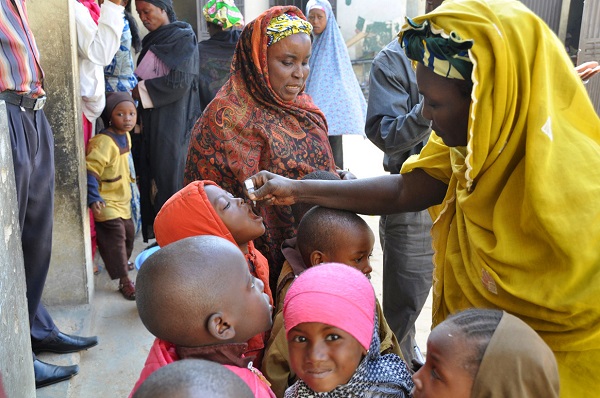
The World Health Organisation (WHO) has called for urgent action to fully eradicate polio in Nigeria, despite the country’s significant achievement of a 38 per cent reduction in circulating poliovirus ‘type 2’ cases between 2023 and 2024.
WHO’s representative in Nigeria, Dr. Walter Mulombo made this statement in Abuja during the 2024 World Polio Day commemoration, held annually on October 24 to raise awareness and mobilise resources for global polio eradication.
Mulombo urged community leaders and health workers to intensify efforts to meet the 80% reduction target set for December 2024. While acknowledging the progress made, he expressed concern over ongoing challenges, such as vaccine hesitancy, regional conflicts and difficulties reaching remote areas.
“We have made great strides in reducing poliovirus ‘type 2’ transmission, but the job is far from finished. The key challenge is ensuring every child is vaccinated. We must accelerate efforts to close the gap and protect those still at risk,” he said.
He also warned of the global threat posed by continued transmission, particularly in conflict-ridden regions like Gaza, Sudan, and Yemen. “As long as polio exists anywhere, all countries remain at risk,” he added.
Mulombo emphasised the need for global solidarity and sustained efforts to stop outbreaks while reminding Nigerians of their critical role in helping Africa achieve wild poliovirus-free status in 2020. Despite this milestone, variant polioviruses remain a challenge.
He reiterated WHO’s commitment to supporting Nigeria’s polio reduction goals in collaboration with the Global Polio Eradication Initiative (GPEI) and other partners. He called on community, religious, and traditional leaders to take a more active role in promoting vaccinations, particularly in hard-to-reach areas, stating, “It’s not just about meeting targets; it’s about protecting future generations from a preventable disease.”
UNICEF’s health manager for immunisation, Dr. Shaikh Kabir praised the bravery of vaccinators, health workers and mobilisers who have been attacked, killed or abducted in the line of duty. “Their sacrifices have laid the foundation for our progress in polio eradication. We must honour them by continuing the fight,” Kabir said.
He also stressed that polio vaccination alone is not enough. “To eradicate polio and other preventable diseases, we must strengthen routine immunisation and improve overall health systems. A comprehensive approach is crucial for long-term success,” he added.
Kabir noted that with 23 million Nigerian children missing routine vaccinations, urgent action is needed to close this gap. “Strengthening routine immunisation is key to preventing not just polio but also other diseases threatening children’s health,” he said.
He highlighted UNICEF’s collaboration with celebrities to raise awareness through campaigns like No More Zeros. A song released today serves as a reminder of the importance of reaching zero polio cases and ensuring every child is vaccinated.
He concluded by calling for continued commitment and collaboration to ensure every child is vaccinated, emphasising that this is the only way to achieve a polio-free Africa. Kabir expressed confidence that through collective efforts, a brighter future for every child can be secured.
Despite significant progress, the spread of circulating variant poliovirus type 2 in Nigeria remains a concern, primarily due to insecurity, limited healthcare access, and population mobility. In 2023, 83 cases of circulating vaccine-derived poliovirus type 2 (cVDPV2) were reported, with the highest numbers in Kebbi, Nasarawa, Kaduna and other northern states.

